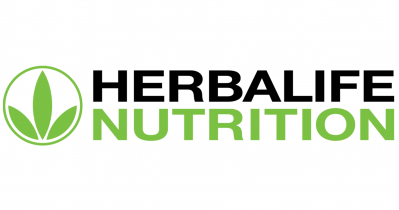Herbalife stock at all time high after Ackman throws in towel

While this development can be seen as a huge win for Herbalife, CEO Rich Goudis wasn’t sounding a note of victory. Rather, he preferred to look forward, and didn’t mention Ackman by name.
“The performance and resiliency of our company is rooted in our purpose to make the world healthier and happier. For those who aren’t familiar with us, or may misunderstand us, don’t be afraid to get to know us,” Goudis told NutraIngredients-USA.
Herbalife’s vulnerability on sales accounting
Herbalife is the world’s largest multi-level marketing organization devoted solely to the sale of nutritional products. The company, which announced yesterday that it is formally changing its name to Herbalife Nutrition, reported $4.4 billion in annual revenue in is recent year-end earnings report.
The story of Herbalife’s travails with activist investors and regulators actually started before Ackman’s attack. In an earnings call in 2012, investor David Einhorn directed a couple of questions to the company’s executives regarding how Herbalife was at that time accounting for sales to its independent distributors as opposed to sales to end users, which in a more conventional retailing environment would be the company’s consumers. While the interaction seemed relatively innocuous at the time, stock traders concluded Einhorn was on to something and Herbalife’s stock price dropped precipitously the next day. Ackman subsequently picked up that gauntlet.
What constitutes a pyramid?
For years, one of the criticisms of the network marketing model has been that some companies policies could induce distributors to spend most of their time recruiting new, subsidiary distributors to their networks rather than making sales of products.
Combine that impetus with the volume requirements some companies put in place and you could have a situation in which lots of distributors could have garages full of inventory and relatively fewer people would be actually consuming the products. Somewhere along that number line is the division between an illegal pyramid scheme, in which bringing new members into the scheme is the overriding purpose of the enterprise, and a legal network marketing model which has as its basis the sale of products or services to consumers.
$1 billion bet
Ackman maintained that Herbalife was on the pyramid scheme side of this divide and reportedly bet $1 billion of the funds under management at his firm Pershing Square on that assertion. He embarked on a public relations campaign that was unprecedented in its scope for a short seller that included video presentations.
In addition to the pyramid scheme allegations, Ackman claimed that Herbalife was taking advantage of unsophisticated distributors in minority neighborhoods by inducing them to invest in the opening of Nutrition Clubs, which are storefront operations where distributors can sell products and recruit new members. In response, Herbalife lashed back with its own public relations blitz that emphasized the notion of ‘personal consumption.’
Around that time in mid 2013, the company also started to play up the quoting of ‘volume points’ in earning calls, to direct more of the discussion toward product sales and to spend less time on the growth in distributor numbers. The company also started to divulge the average commission payments to distributors, which were less than $2,000 a month at the time, rather than focusing solely on the ‘you could be the next millionaire’ message.
FTC fine
Herbalife ran into difficulties with regulators, too. The Federal Trade Commission investigated the company’s operations and concluded that there was enough concern about the pyramid scheme questions to force a settlement with the company. Herbalife agreed in 2016 to pay a $200 million fine and to restructure its accounting practices to better delineate who was a distributor and who had signed up with the company primarily to receive discounts on products. It also agreed to change its compensation scheme to downplay the rewards distributors could earn for signing up new distributors.
Ackman and other critics greeted the FTC settlement as a sign of the company’s impending implosion. While the news of the fine and the new business practices that resulted did drive down the company’s stock price and hurt sales for a number of quarters, Goudis said in the recent earnings call that most of that pain is behind the company now and it can look forward to renewed growth. Herbalife’s stock is now trading at an all-time high of $92 a share.









